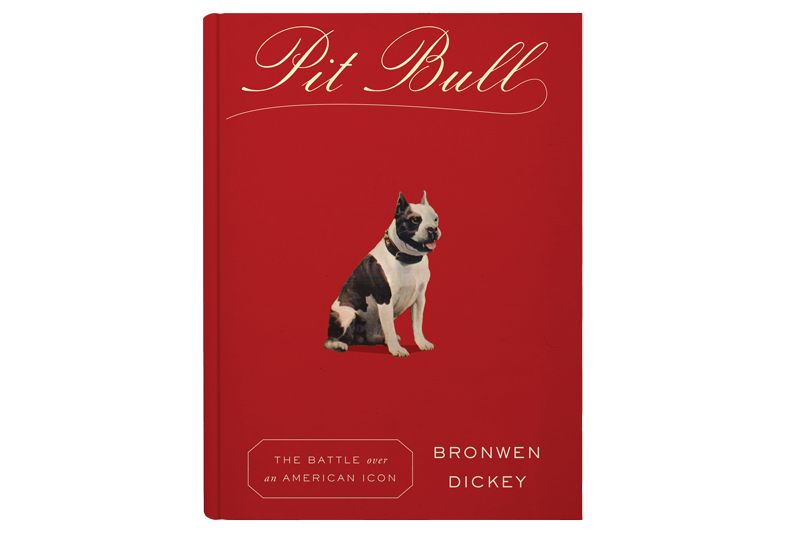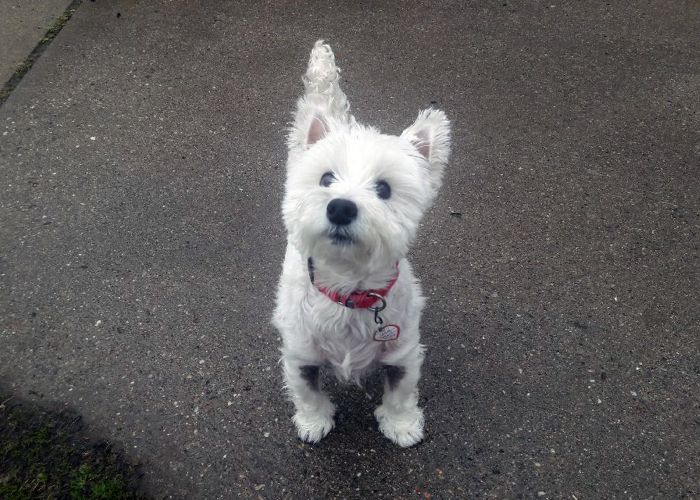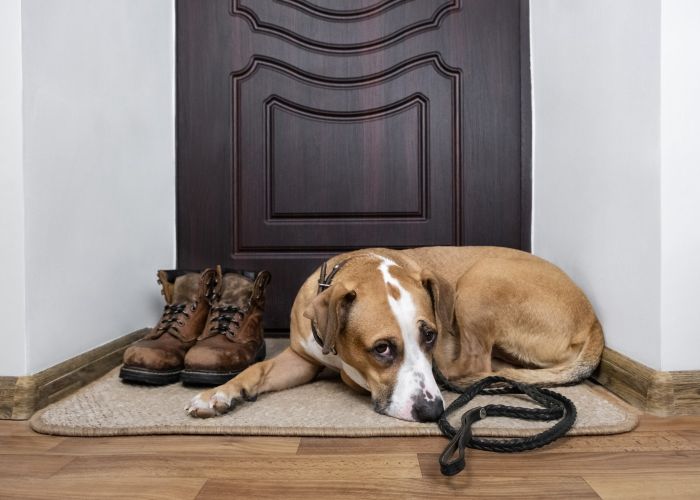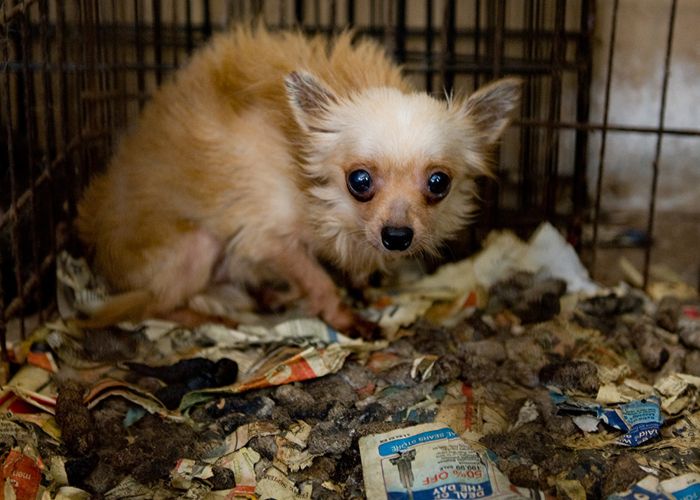Beyond breed
Author offers a clear-eyed view of the history of pit bull-type dogs

In September, author Bronwen Dickey kindly made a “pit” stop at our HSUS offices to discuss her new book, Pit Bull: The Battle Over an American Icon. Over seven years, Dickey traveled to 15 states and interviewed 350 people as research for the book, which the Christian Science Monitor dubbed “a remarkable study of our capacities for cruelty and compassion toward dogs and other humans.” Despite pushback from anti-pit-bull activists (and a campaign to award the book one-star reviews on Amazon), Pit Bull has been widely praised as an even-handed, factual exploration of how history and culture shape our perception of pit bull-type dogs (and, for what it’s worth, has still earned five stars on Amazon). The following is an edited transcript of Dickey’s discussion with HSUS staffers.
One of the first things people ask about any dog is, “What breed is that?” Why are humans so invested in categorizing dogs by breed, and when it comes to your own pit bull-type dog, what do you say to people who ask?
We think about these breeds of dogs as being ancient, going back to tony estates hundreds and hundreds of years ago, and having these really dyed-in-the-wool roles, and that’s really not true. Over three-quarters of the breeds that we recognize today originated after 1859, when the first dog show happened in the U.K. So before then, they were just kind of different shapes of dogs that did different things. In Elizabethan England, a mastiff was really any large dog. A shepherd would be any dog that worked with livestock.
But we are so attached to the idea that [breed] means something indelible across time and space, and we kind of forget that most dogs today are not bred for their working traits. They’re bred in a commercial market. They are bred to be companions. That doesn’t mean that breed traits don’t exist, but the people who are breeding rigorously and applying that continual selection pressure for behavior are very rare in the dog breeding world now.
There’s so much more to the dog than we can see. Only this tiny, tiny fraction of the dog’s genome is visible to us. What do I say my dog is? She’s Nola. That’s really all that matters to me.
Should we stop labeling dogs as pit bulls, or should we be working to shed breed biases in general?
That’s a really tough question, and I don’t have the answer. It would be nice if the term “pit bull” only applied to the pedigreed [American pit bull terrier] breed, but that horse left the barn almost a hundred years ago. You go back to the [early 1900s], and people were referring to random block-headed dogs as pit bulls or bulldogs, and they weren’t pedigreed by any means.
If the overuse of the term [pit bull] has done anything positive, it’s shown people how incredibly diverse this group of dogs is. There’s really nothing you can say about them at this point—they are so diverse. You can’t say they are better, faster, stronger, smarter, more cheerful, more anything, just like you can’t say they’re more dangerous, more unpredictable, etcetera; the pool is simply too large. It really is like saying, “What are Americans like?”

People all over the country own and want pit bull-types, but a lot of the dogs are being euthanized in shelters, as well. Why do you think there’s a perception that pit bull-types are unadoptable?
When I really started digging into the research, I had this idea that pit bulls ended up in shelters because people didn’t want them. In fact, they end up in shelters because tons of people want them, and those people can’t find anywhere to live. The
No. 1 reason for pet relinquishment, according to the most rigorous studies, is housing [restrictions].
[The perception] also has to do with who we are asking and who we are listening to about what kind of dogs they want. In so many neighborhoods I’ve been to, it’s “Pit bulls are the best.” Like any other industry, animal welfare can be kind of hermetic, and people think that if a certain demographic coming into a certain shelter doesn’t want a type of dog, nobody wants that type of dog. But in the rest of the world these dogs are incredibly popular.
I think the more we can push for fair, just, equitable communities for people to live in, the more we’re going to have fair, just, equitable communities for pets to live in. In my experience, a lot of these [housing restrictions] had to do with wanting a certain type of person off the property, and it’s an ugly, ugly thing. And that has to be called out for what it is.
For years, the animal welfare movement defended pit bull-types with the argument: “It’s not the dog; it’s the ‘bad people.’” What are your thoughts on how to defend the dogs without suggesting an ugly race/class stereotype?
So many of the most damaging things about the dogs were said by people who really thought they were helping. Back in the ’70s, when the animal welfare groups were teaming up with the press to make dogfighting a front-page issue, no one could have foreseen that all that glut of coverage would have actually interested people in dogfighting instead of making them horrified by it.
So then the corrective measure, once that started to happen, was to blame the people who were interested in the dogs, especially African American and Latino young men. There was certainly a bad spike of urban dogfighting in the ’90s, but now it’s this idea that any urban neighborhood, or any neighborhood that’s populated by a majority of people of color, is somehow some hotbed of dogfighting, and that’s just not true. I’ve been to North Philly and East Atlanta and Oakland and Compton and Watts [in Los Angeles]. And it’s just not true. Does it exist? Sure. But it’s not nearly at the scale that [people] seem to believe.
When people say things like, “Pit bulls would be so great if all those thugs didn’t own them, or gangsters, or drug dealers,” or whatever, that’s just creating this monster in the background. And that feeds [breed-specific legislation]—the idea that [pit bulls are] prevalent among drug dealers or whatever. So I think the dogs aren’t served by vilifying anyone.






